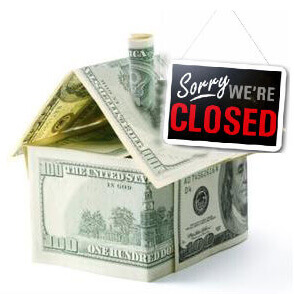Government Shut Down And Real Estate

How Will The Government Shutdown Affect Your Real Estate Investment Business?
Like other areas in the economy (though certainly not all), the government shutdown has been nothing more than a mild inconvenience in the real estate market, and has caused more anxiety than real harm so far.
However, that doesn’t necessarily mean that things won’t start to get pretty hairy, pretty soon, if those in Washington don’t figure it out.
As parties attempt to move toward a deal on the debt ceiling to resolve the government shut down, realtors, economists, and investors are speculating on what’s going to happen next to the real estate market.
If the interest rates go even further up, regardless of reason (be it reality or fear), then there will definitely be significant consequences on real estate sales.
The truth is that the market has been cooling off in the last month or two anyway because of rising interest rates and rising prices to go with them; nevertheless, if this impasse between congress and the President doesn’t resolve pretty soon, the real estate market will see some effects that will put the real estate market, and some say the economy with it, on pretty shaky ground.
Mark Zandi, chief economist for Moody’s Analytics, a financial research organization said, “Housing is key to the economic recovery. It’s already struggling under tight credit and this is a problem adding to the impediments to a healthier market.”
Government agencies are significant to real estate transactions in varying ways and for the private sector, the biggest issue may be something so simple as getting a loan closed.
Anyone who has ever financed a property understands the amount of paperwork involved. Something so basic as a lender not being able to work with the IRS to get income reports can really put a hold on things, though some lenders have been doing a work around by bending the rules to accept tax returns and pay stubs.
“It’s a paperwork issue,” says Howard Gleckman of the Tax Policy Center. “It apparently really is starting to throw sand in the wheels, absolutely.”
Now more than ever its good to have a database full of private moneylenders and I’m not talking about JP Morgan Chase or Wells Fargo; those guys are still going to need to turn around and sell those loans to giant government-backed mortgage companies like Freddie Mac or Fannie Mae and at the moment, they can’t do that.
Savvy real estate investors, however, are not concerned because they’ve got systems in place to deal with these kinds of situations, among others. Private moneylenders have always been the name of the game, but now, with government parties bickering over their own agendas, those systems are more valuable than ever.